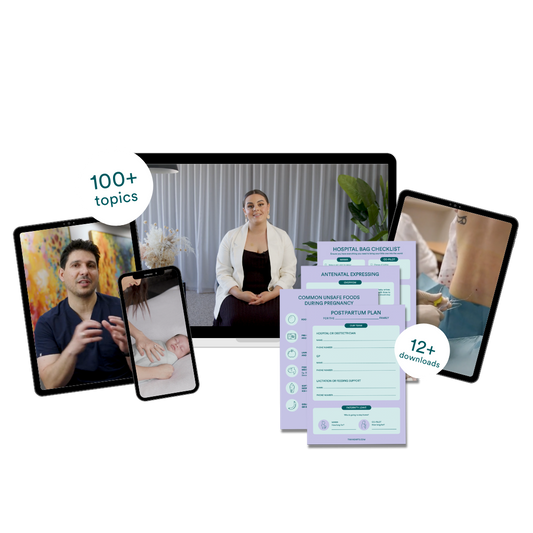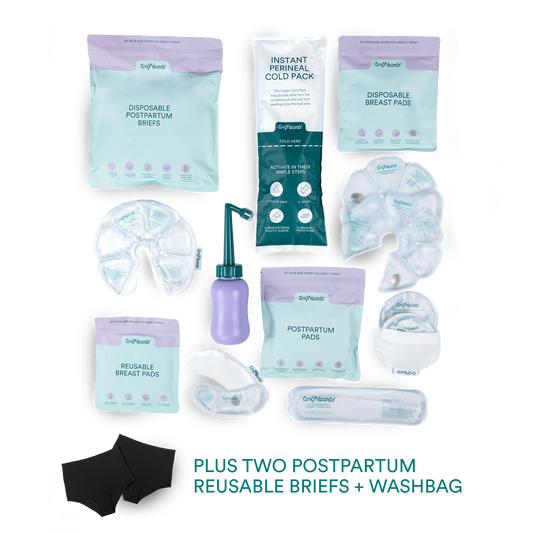A Cold or Something More?Thank you to Mason’s mama, Ashleigh for sharing her story
When my son Mason was just 12 weeks old, what seemed like a common cold turned into a life-threatening ordeal. With two older brothers, we thought Mason had simply caught their bug. He was congested and having trouble feeding, which we now know was due to secretions he couldn’t clear himself because of paralysis.
Mason’s feeding difficulties led to mastitis for me, and when he went all morning without a wet nappy, my instincts told me something was very wrong. I decided to take him to the emergency department. He seemed fine at first, and we were told to "give him some water" and go home. But I knew better. Infants at 12 weeks old aren’t supposed to drink water, so I insisted on seeing a paediatrician.
A Rapid DeclineWe were transferred to another hospital where Mason's condition worsened. He needed a nasogastric (NG) tube, and we believed we were dealing with a virus. But as he continued to struggle with his secretions, his skin began to lose its colour. A nurse, noticing something was wrong, checked his oxygen levels—his sats were in the 80s. Mason was put on oxygen, but within hours, he lost all reflexes and fell unconscious.
In a blur, we were flown to a third hospital and admitted to the NPICU (Neonatal and Paediatric Intensive Care Unit). Mason underwent a battery of tests—blood tests, EEG, CT scan, MRI, lumbar punctures—but nothing provided answers. We were looking at everything from Guillain-Barré syndrome to genetic disorders, but the doctors were stumped. We were having heart-wrenching conversations about resuscitation and life expectancy. It was terrifying.

One of the neurologists mentioned botulism, but it was initially dismissed because Mason had never ingested honey or solid foods, the typical sources of the bacteria. However, the possibility couldn’t be ruled out, and we sent a stool sample for testing.
In the meantime, Mason began showing slight improvements, so we were moved to the paediatric ward. A few days later, the test results came back positive for botulism. We were relieved to finally have a diagnosis and a treatment plan. Unfortunately, because Mason was showing signs of improvement, he wasn’t eligible for the medication, BabyBIG. But our relief was short-lived—Mason started regressing again. I voiced my concerns, but they were downplayed.

Mason’s condition deteriorated, and he turned blue again, requiring oxygen. We were four hours away from home, and it was Christmas time. My husband was home with our 2- and 3-year-old sons. The medical team decided to transfer us to a hospital closer to home, but my gut was uneasy.
During the ambulance ride, Mason’s oxygen levels began to plummet. The nurse’s concerned face said it all. She contacted her superior, and we pressed on, adjusting his position until his oxygen levels stabilised. When we arrived at the hospital, I pleaded with the nurse—I knew we shouldn’t be there.
The next morning, Christmas Day, Mason aspirated his NG feed and went into respiratory arrest. His oxygen levels dropped dangerously low, and he turned white. A code was called, and by some miracle, the only doctor on the ward that day was right outside the room. He intubated Mason and got him on a ventilator. Mason was then helicoptered back to the ICU while I made the 4-hour drive to meet him there.

The BabyBIG medication for botulism was urgently requested from California and was administered on New Year’s Eve. The improvement was almost immediate. Mason was kept in the NPICU, where we felt safe after the mistakes made on the other ward. After two more weeks, bringing our hospital stay to 42 days, Mason was finally able to come home.
A Happy EndingSince returning home, Mason has thrived. He’s met every developmental milestone and is the strongest of my boys. His symptoms had included a loss of sucking strength, weakness in his eyes, head lag, and eventually, full-body paralysis. He also experienced constipation, though we didn’t think much of it at the time since it wasn’t unusual for him to go a week without a bowel movement. His weak cry, which developed over just a few days, was another sign we overlooked.
The doctors believe Mason contracted botulism from the environment, possibly due to nearby construction and disturbed soil.

Looking back on our journey, I can’t stress enough the importance of trusting your instincts. If something feels wrong, push for answers. Mason’s story could have ended very differently, but thanks to persistence, we now have a happy, healthy baby boy.









